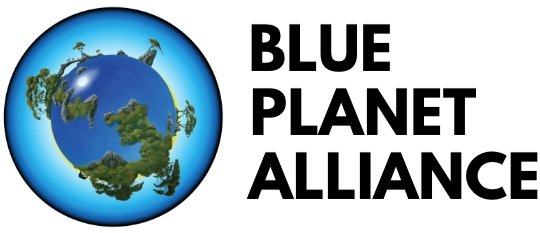Making Waves in Lisbon
Water covers 71 percent of the earth — and 97 percent of that water is in oceans. Oceans are further the source for food and livelihoods for billions. And yet much of that area remains unregulated, threatening the sustainable future of both these marine ecosystems and the existential benefits they provide.
Protecting oceans was the focus this past week in Lisbon, as the Portuguese capital hosted the UN Ocean Conference (June 27 to July 1). The Portuguese government co-hosted the conference with the government of Kenya. (The conference was supposed to take place in 2020, but was delayed two years because of COVID.)
There were high-level government talks with representatives of 120 countries — including 24 heads of state — as well as sanctioned side events, and 6,000 total participants. Blue Planet Alliance participated in many — and even sponsored some — of those side events.
The conference culminated in the Lisbon Declaration, a 17-point document (perhaps symbolic of the 17 SDGs) that most importantly commits the signatories to following “science-based and innovative actions on an urgent basis,” particularly to aid Small Island Developing States (SIDS) and Least Developed Countries (LDCs) in coping with oceanic challenges.
And the conference also yielded some 700 commitments from governments, including new protective measures from their exclusive economic zones (EEZs), defined as 200 nautical miles from their shores. Colombia, for example, announced that it would be the first nation to meet the 2030 goal of preserving 30% of the ocean off of its coasts (the 30 before 30 challenge) within Marine Protected Areas (MPAs), potentially achieving it this year, eight years ahead of the deadline.
United States Special Presidential Envoy for Climate John Kerry was in attendance, and announced a White House signed memorandum to combat illegal, unreported, and unregulated (IUU) fishing, “among the greatest threats to ocean health.”
And 21 new governments committed to a circular economy for plastics, which could by 2040 reduce the amount of plastics in our oceans by 80% and create 700,000 new jobs.
UN Secretary-General Antonio Guterres, speaking in his home country of Portugal, noted that “failure to care for the ocean will have ripple effects across the entire 2030 Agenda,” a.k.a. The UN Sustainable Development Goals. And UN Secretary-General’s Special Envoy for the Ocean Peter Thomson, of Fiji, said, on the eve of the conference, that achieving the SDGs was essential for “our survival on the planet.”
But whether the conference went far enough to care for the ocean remains to be seen, and whether some of these rose-colored announcements will actually take place.
With regards to side events, Blue Planet Alliance co-hosted (with Peace Boat, Solgaard, EarthX, and One Ocean Hub) a sunset cruise with a stellar lineup of renowned marine experts, such as Dr. Sylvia Earle, ocean explorer Fabien Cousteau, Palauan UN Representative Ilana Seid, UN Food and Agriculture fishery policy analyst Nicole Franz, actor and activist Roberto Manrique, and BPA Founder Henk Rogers. Each expert had time to address the attendees and give them oceanic insights on the opening night of the conference while out on the water where the Tagus River meets the Atlantic Ocean.
Rogers was also a featured speaker in the official conference’s SDG Media Zone, where with Khadija Stewart (of the Sustainable Ocean Alliance, representing Trinidad and Tobago) and Tatsuya Yoshioka (Founder of Peace Boat), the panelists discussed the importance of oceanic issues. “The only way that we’re going to achieve the goals of the Paris Agreement — or any of these agreements,” said Rogers, “is if the people rise up and decide to do this. So it’s not the United Nations, it’s the united people. Once the united people say ‘We want this,’ then the United Nations can actually get this done.” (WATCH the whole panel here.)
As the conference closed on July 1, BPA co-sponsored (along with Sounds of Ocean, EarthX, Peace Boat and United by Sea) an evening finale that was an immersive sound experience, “Sounds of the Ocean, featuring Joshua Sam Miller,” live, soothing music on a stage in front of an enormous, circular screen showing images from below the oceanic surface. The evening kicked-off with a panel "Collaboration, Scaling Impact, Engagement" featuring Rogers, 5 Minute Foundation’s Carolina Sevilla, LinDoMar co-founder and film director Dörte Schneider, and producer & filmmaker and founder of Convergence, Daniel Cervenka. The event was a mindful reminder of the value that oceans have, well beyond the obvious. It’s also worth noting that oceans are climate stabilizers and help store tremendous amounts of carbon, protecting us all from carbon gasses.



